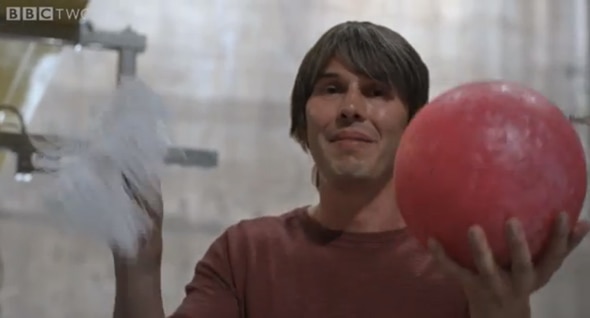Create a free profile to get unlimited access to exclusive videos, sweepstakes, and more!
Hey, Galileo Was Right!

One of the funny things about being a human is that our intuition can steer us wrong, even on things that should be pretty obvious, things we see literally every day.
For example, if you ask someone what would fall faster, a bowling ball or a marble, I bet a lot of folks would say the heavier bowling ball falls faster. But in fact, if dropped from a meter or so off the ground, they’d fall at the same rate. Gravity accelerates them at the same rate, so they fall at the same rate.
Part of the reason our intuition is off here is due to air. As objects fall, the air pushes back on them. This depends pretty strongly on their surface area, how big they are, so a lightweight large object will in fact fall more slowly than a heavier, smaller one.
Dropping a bowling ball and a feather will yield results that will satisfy our intuition. But what if you removed all the air from the room and dropped them? What happens then?
My friend and physicist Brian Cox did just this for his new BBC TV series Human Universe. He traveled to NASA’s Space Power Facility at the Glenn Research Center in Ohio to test gravity. What happens when he does is pretty wonderful.
Lovely! With the air removed, the feathers and ball fall at the same rate, just as Galileo predicted and Newton showed mathematically. I assume the bit at the end of the video about Einstein is referring to the Equivalence Principle, which has to do with acceleration due to gravity—if you’re standing on the Earth’s surface, you feel this as your weight, the force due to Earth’s gravity on your mass—and is indistinguishable from acceleration due to some force (like being in a rocket under power). This idea has profound implications, and in part led to Einstein developing the theory of General Relativity. I’d love to see this show and find out how Brian follows that concept farther.
I’ve known Brian for quite some time, and I have to say it’s nice to see him finally get some recognition for his work. The poor guy has been languishing in obscurity for years.


























